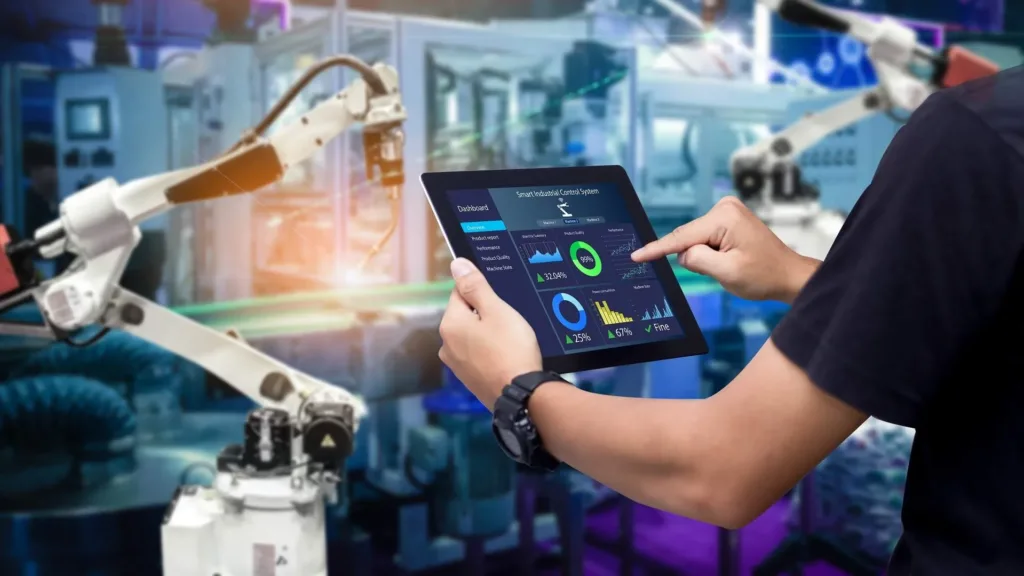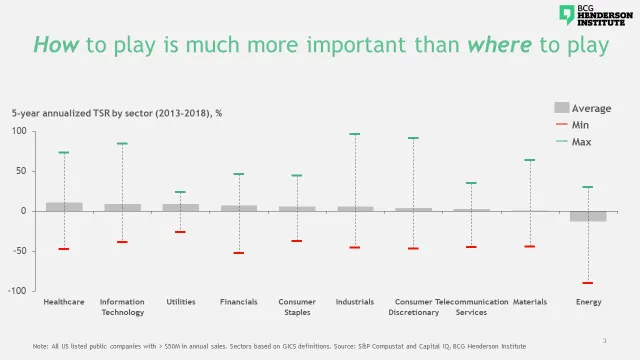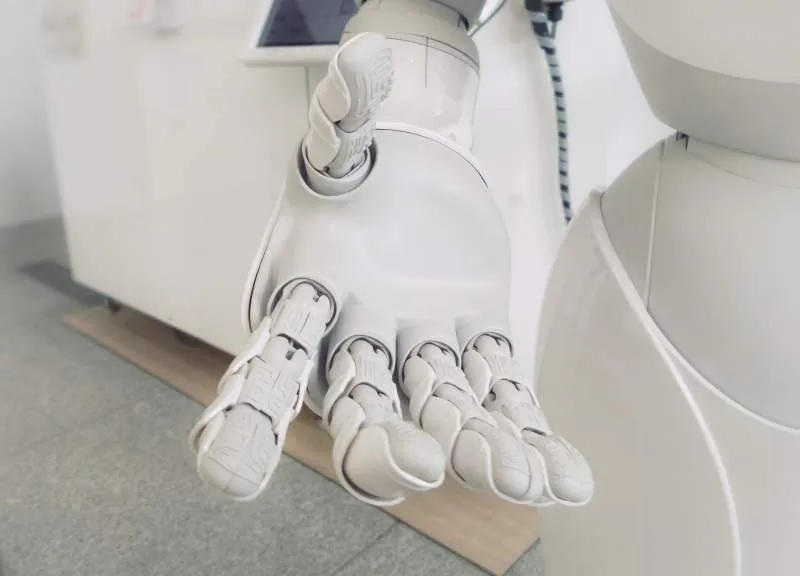Innovation at Work: Issue 2

Last week, we brought you our first issue of weekly curated content on the top five most insightful and interesting articles related to the future of work. This week, we bring you our carefully curated list of five newsworthy articles and opinion pieces connected to innovation at work.
You can find the summaries of each article below or simply click on the link to read the full article.
Table of Contents
This Week’s Top 5
1. This is how companies can compete in the 2020s
 It’s the beginning of a new decade and for businesses, this means one thing: Reinvention. Irrespective of where they are in the market or how established they are already, companies will need to reinvent themselves this coming decade if they are to succeed in a new and highly-competitive environment. In 2020, defying the average has never been more important for businesses. Seeing as growth rates have been on a downward trend, being average no longer cuts it. And past performance won’t indicate future success – what worked before won’t necessarily work now. According to Martin Reeves, Senior Partner & Managing Director at BCG Henderson Institute, top companies are falling faster. Key forces that will impact businesses include AI, a changing geopolitical power map, demographic headwinds, and climate change. To reinvent and innovate, it’s imperative for businesses to build hybrid learning organizations, apply the science of change, and harness human diversity.
It’s the beginning of a new decade and for businesses, this means one thing: Reinvention. Irrespective of where they are in the market or how established they are already, companies will need to reinvent themselves this coming decade if they are to succeed in a new and highly-competitive environment. In 2020, defying the average has never been more important for businesses. Seeing as growth rates have been on a downward trend, being average no longer cuts it. And past performance won’t indicate future success – what worked before won’t necessarily work now. According to Martin Reeves, Senior Partner & Managing Director at BCG Henderson Institute, top companies are falling faster. Key forces that will impact businesses include AI, a changing geopolitical power map, demographic headwinds, and climate change. To reinvent and innovate, it’s imperative for businesses to build hybrid learning organizations, apply the science of change, and harness human diversity.
2. Why AI As A Service Will Take off In 2020
 2020 might very well be the year that AI-as-a-Service explodes onto the scene. The future of digital transformation and innovation relies on the democratization of the latest tech, so it’s imperative that AI becomes a must-have and not simply a nice-to-have. AI-as-a-Service centers on making technology accessible to companies of all sizes. Google, Amazon, Microsoft, and IBM are (unsurprisingly) already key players in the AI-as-a-Service race. Reasons why AI-as-a-Service might make a huge mark this year include: The demand for AI to meet customer expectations is ever-growing, the legacy era is finally coming to a close, and SMBs need it to help them compete against the tech giants.
2020 might very well be the year that AI-as-a-Service explodes onto the scene. The future of digital transformation and innovation relies on the democratization of the latest tech, so it’s imperative that AI becomes a must-have and not simply a nice-to-have. AI-as-a-Service centers on making technology accessible to companies of all sizes. Google, Amazon, Microsoft, and IBM are (unsurprisingly) already key players in the AI-as-a-Service race. Reasons why AI-as-a-Service might make a huge mark this year include: The demand for AI to meet customer expectations is ever-growing, the legacy era is finally coming to a close, and SMBs need it to help them compete against the tech giants.
3. Industries Most Affected by Artificial Intelligence
 Artificial Intelligence has been a hot topic for a good few years now, and as we head into a new decade, AI is set to become more advanced and sophisticated. While some may still see AI as a competitor to human labor, there’s no denying the wealth of advantages it’s bringing to various industries. Three industries where AI is currently making waves include manufacturing and the 4th Industrial Revolution, healthcare, and marketing, For manufacturing, AI (instead of replacing jobs) is helping people to do their jobs more safely and efficiently. AI is huge for healthcare and can enhance it at all levels, particularly the patient experience. As a game-changer in the medical industry, AI will ultimately be saving lives. And for marketing, the digital customer now expects personalized and tailored experiences, which AI-powered chatbots provide.
Artificial Intelligence has been a hot topic for a good few years now, and as we head into a new decade, AI is set to become more advanced and sophisticated. While some may still see AI as a competitor to human labor, there’s no denying the wealth of advantages it’s bringing to various industries. Three industries where AI is currently making waves include manufacturing and the 4th Industrial Revolution, healthcare, and marketing, For manufacturing, AI (instead of replacing jobs) is helping people to do their jobs more safely and efficiently. AI is huge for healthcare and can enhance it at all levels, particularly the patient experience. As a game-changer in the medical industry, AI will ultimately be saving lives. And for marketing, the digital customer now expects personalized and tailored experiences, which AI-powered chatbots provide.
4. How Building Serendipity Into Your Business Strategy Can Help It Grow Faster
 Staying focused is definitely a key factor for success – no one can deny that. For businesses, staying focused on the market, on trends, on projects, and on business relationships will always yield the best results. But too much of a good thing can be bad – and the same applies to focus. Entrepreneur and CEO of Affectiva, Rana el Kaliouby, believes that this need to constantly focus should be challenged. Instead, businesses should seek to operate with a healthy mixture of focus and “engineering serendipity” – a willingness to be open to the unknown. This openness to collaborate with people from different backgrounds or unrelated industries (as well as taking the odd chance here and there ) is what will ultimately drive business innovation. So a little less focus and a little more openness can prove invaluable to business growth and success.
Staying focused is definitely a key factor for success – no one can deny that. For businesses, staying focused on the market, on trends, on projects, and on business relationships will always yield the best results. But too much of a good thing can be bad – and the same applies to focus. Entrepreneur and CEO of Affectiva, Rana el Kaliouby, believes that this need to constantly focus should be challenged. Instead, businesses should seek to operate with a healthy mixture of focus and “engineering serendipity” – a willingness to be open to the unknown. This openness to collaborate with people from different backgrounds or unrelated industries (as well as taking the odd chance here and there ) is what will ultimately drive business innovation. So a little less focus and a little more openness can prove invaluable to business growth and success.
5. Clayton Christensen, pioneer of ‘disruptive innovation,’ dies at 67

Clayton Christensen’s ideas on technology have had a tremendous impact on some of today’s largest and most well-known companies. A Harvard Business School professor, Christensen is renowned for his book, ‘The Innovator’s Dilemma’, which pioneered the concept of disruption. His theory explains how large and established companies can be vulnerable to newer technologies that go on to quickly dominate new markets. Christensen, whose work had an impact on Jeff Bezos and Steve Jobs, passed away on 23 January 2020 due to complications from cancer treatment.
If you want to receive our weekly curated list of articles, subscribe to our newsletter (and stay tuned for next week’s list)!

